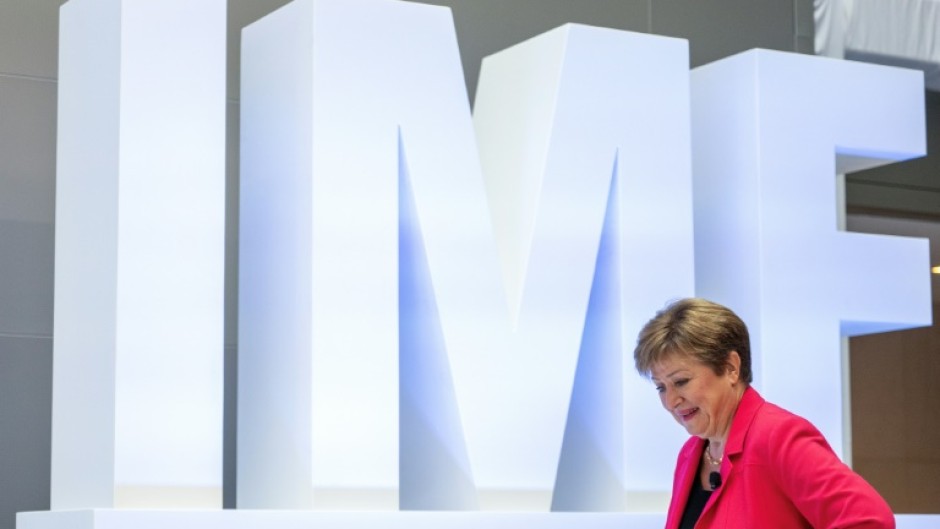WASHINGTON - The global economy is likely to avoid a recession despite the hit to growth from US President Donald Trump's tariff rollout, the head of the International Monetary Fund said.
The stop-start US tariff plans have fueled levels of market volatility unseen since the Covid-19 pandemic, and most economists expect the imposition of new import levies will stifle growth and push up inflation, at least in the short term.
Trade disruptions "incur costs," IMF Managing Director Kristalina Georgieva told reporters in Washington on Thursday, adding that the Fund now expects "notable" cuts to growth -- but no recession.
People live in a world of "sudden and sweeping shifts," she said, in a nod to the recent market volatility.
"It is a call to respond wisely," she added.
Her speech came ahead of next week's Spring Meetings -- a gathering of global financial leaders co-hosted by the IMF and the World Bank in the US capital.
Her remarks suggest the IMF will use its upcoming World Economic Report, to be published on Tuesday, to pare back its previous forecast for global growth to hit 3.3 percent in 2025 and 2026.
Georgieva said the current tariff tensions would likely have three major consequences for the global economy, with smaller advanced economies and most emerging markets likely to be more heavily affected due to their reliance on trade for growth.
"First, uncertainty is costly," she said, adding that it becomes difficult for business to make plans if they do not know how much their inputs will cost in the future.
"Second, rising trade barriers hit growth upfront," she said, noting that "tariffs, like all taxes, raise revenue at the expense of reducing and shifting activity."
"Third observation: protectionism erodes productivity over the long run, especially in smaller economies," she said.
Georgieva called on all countries "to put their own houses in order" by -- among other things -- gradually adjusting their fiscal policies to lower debt levels when necessary, and by maintaining an "agile and credible" monetary policy with a "strong commitment" to central bank independence.
"Perceptions matter as much as reality," she said, calling on world leaders to improve citizens' perceptions of the economy amid plunging consumer confidence -- especially in the United States.

